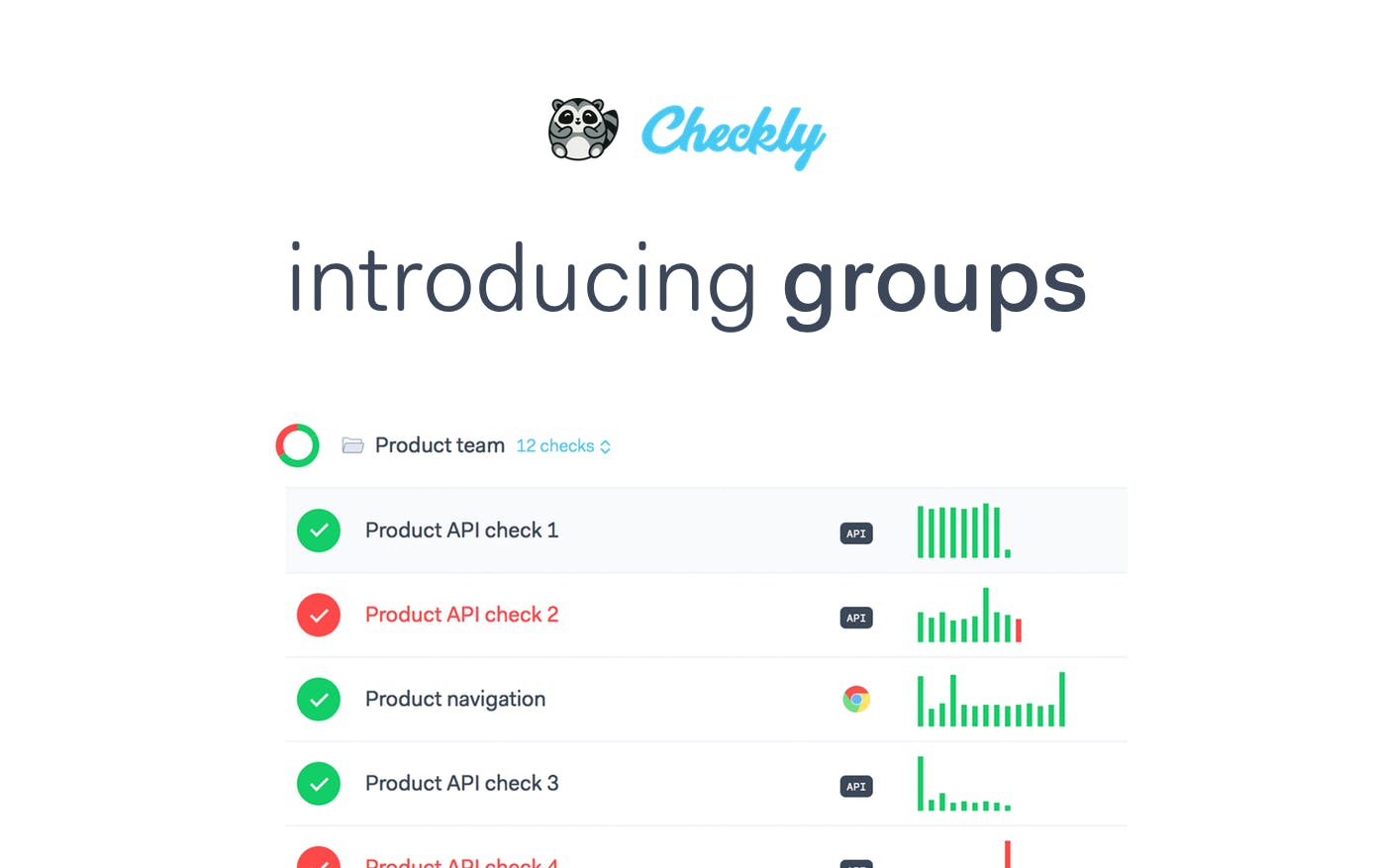Table of contents
We're very happy to introduce groups to Checkly 👯! Grouping checks opens up a range of possibilities and workflow enhancements of which this initial release is just the tip of the iceberg.
Here are some the thing you can start doing right now:
- Organize your checks per team, app, feature or whatever you want
- Set common properties for checks in a group
- Trigger all checks in a group from your CI/CD pipeline
Get organized
You can get started with groups right away by just adding existing checks to a group and giving it a catchy name. How you organize your checks in groups is up to you: teams, applications, feature areas and customers are all good candidates.
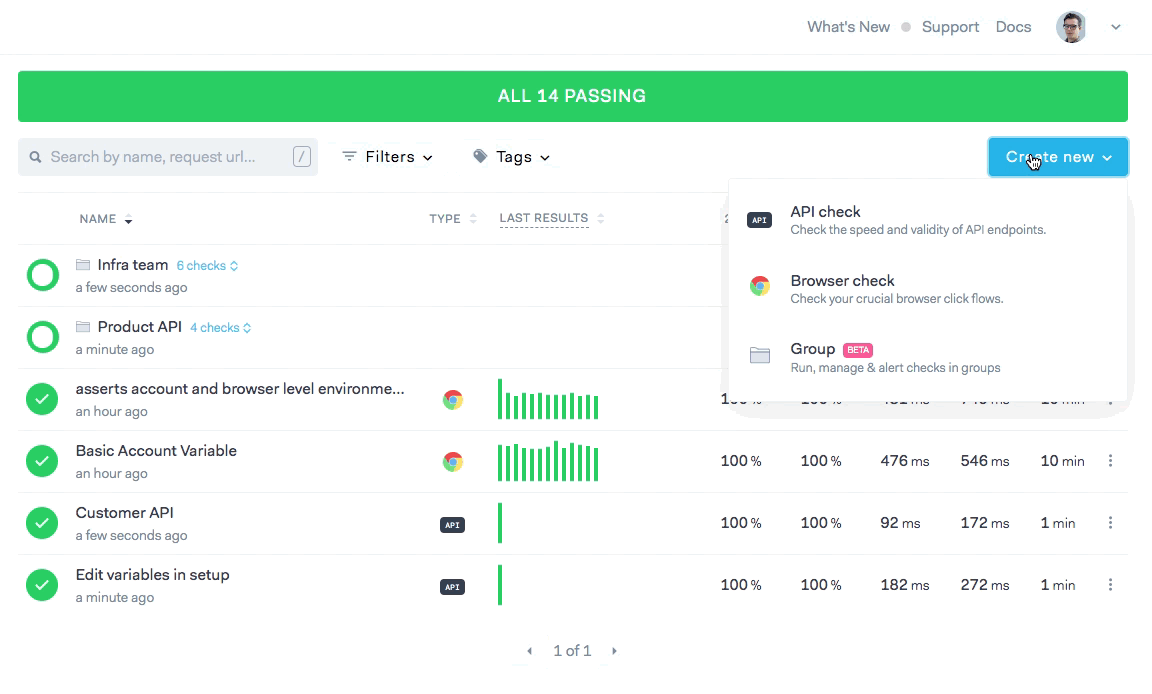
When creating a group, you can configure a set of properties that apply to all the checks in the group, for example:
- Data center locations
- Alert settings
- Alert channels
- Environment variables
- CI/CD triggers — we'll get back to that one a bit below
After creating your group and populating it with checks, your group shows up on the dashboard as one logical unit. Of course, you can still search and filter checks that are in a group.
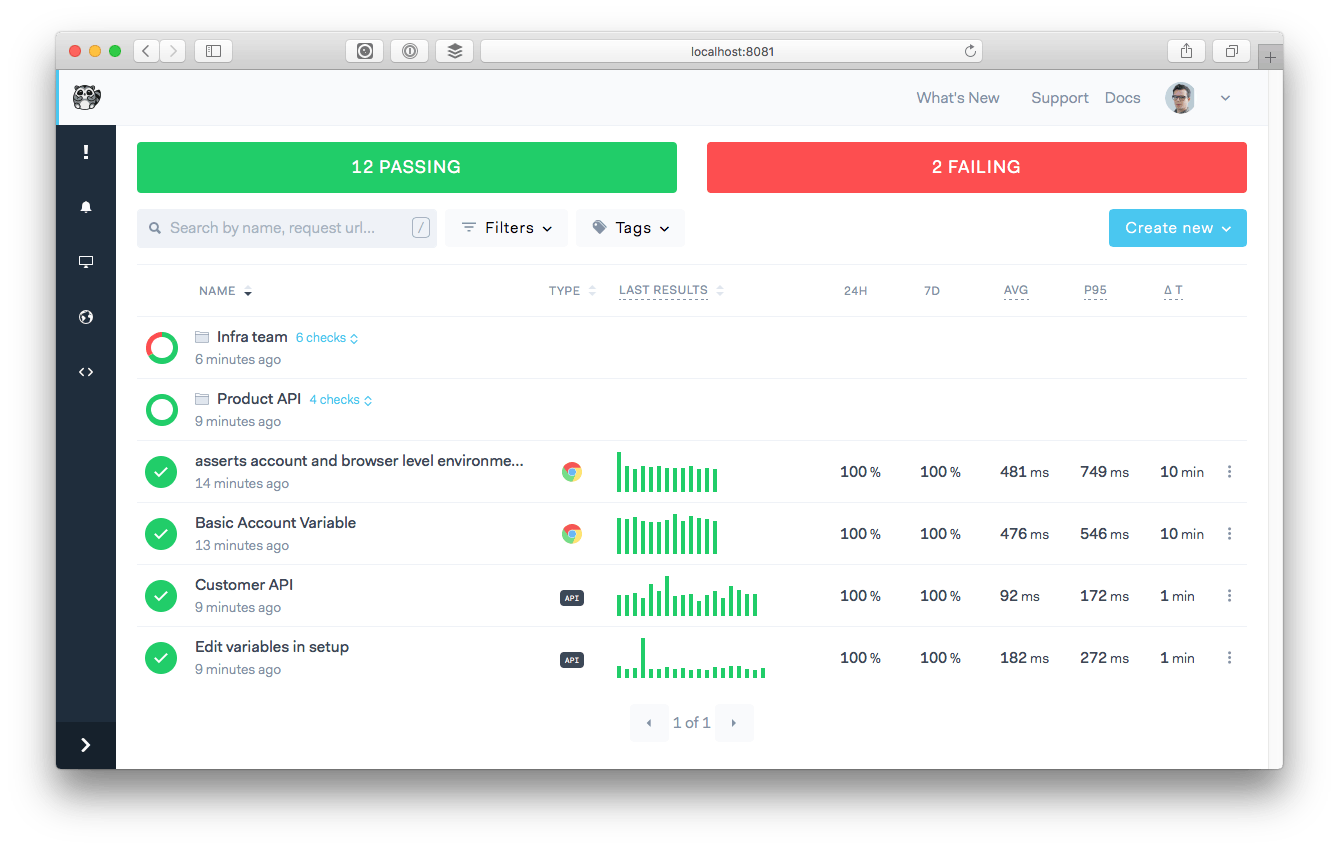
API check defaults
It's very common for a group of API checks to share common properties like:
- The protocol, host and initial path of the URL
https://api.example.com/v1/product/with only changes in the methods, body and further parts of the path. - Headers and query parameters that define a share authorization token
- Assertions that check common return values.
- Setup and / or teardown scripts that fetch a token from an external provider.
You can now use a group to configure these properties and have all the API checks in the group inherit these settings. Have a look at the following example:
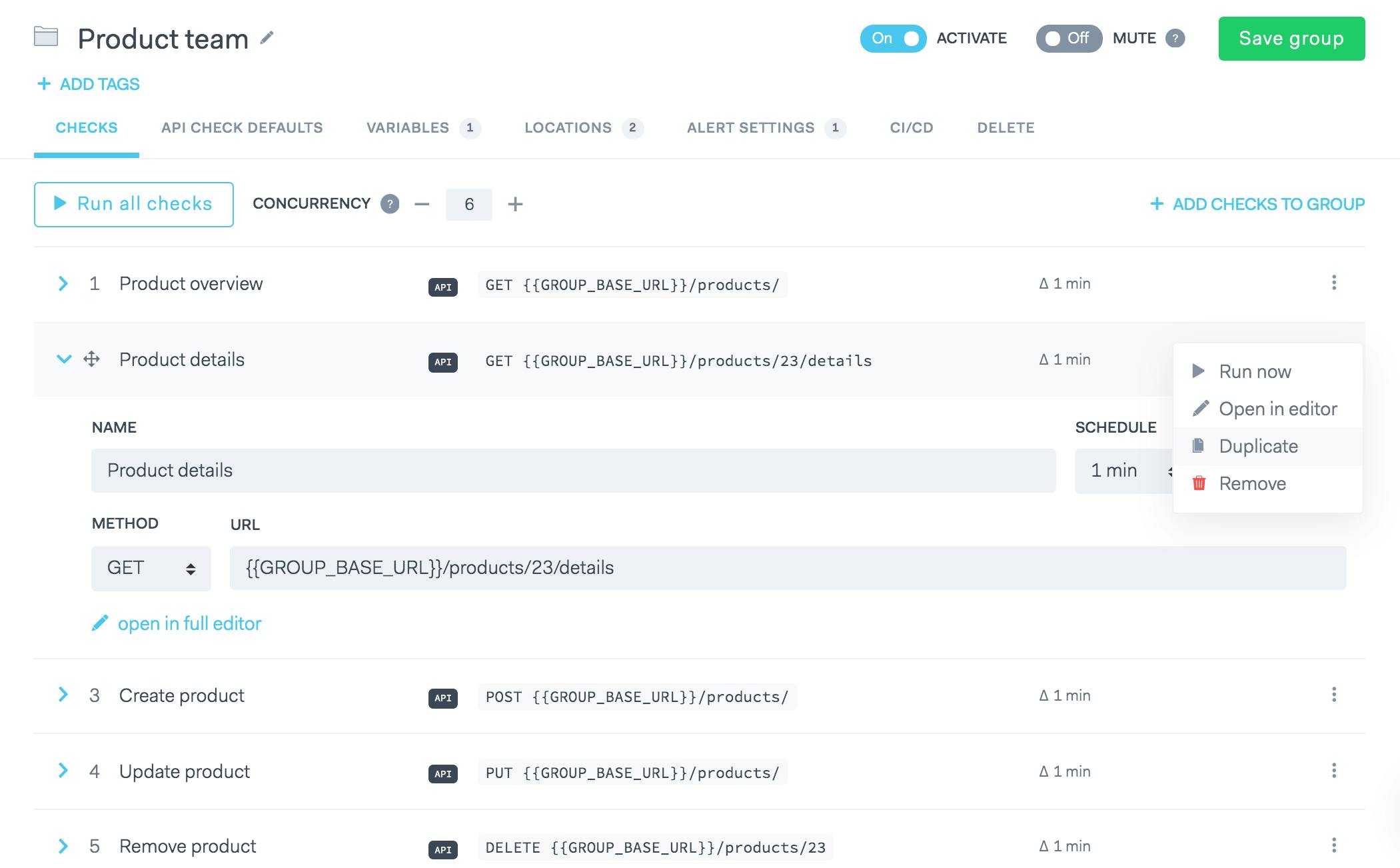
What's happening here?
- We created a base URL, i.e.
https://api.example.com/v1and use the{{GROUP_BASE_URL}}in all the API checks augmented with dedicated methods, bodies and paths to cover multiple parts of our API. - We can quickly add extra API checks by just duplicating one and tweaking the settings in the inline mini-editor.
Note, you can use the group setup script to execute a common action for all checks in the group and still have a check setup script that executes just for a specific check.
Read more about how the use API check defaults in our docs.
Triggering a group in your CI/CD pipeline
You can now trigger a group of checks in the context of your CI/CD pipeline: think of it like executing a suite of E2E tests just like with your favorite test framework like Mocha or Jest.
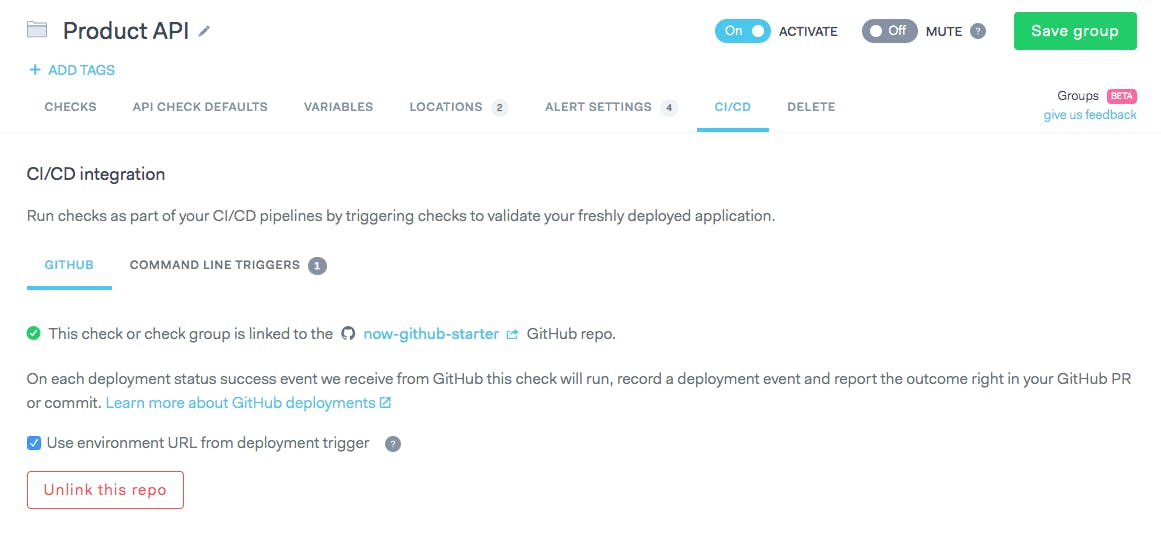
You might have noticed the concurrency property on the group editor screenshot above. This setting is used in two situations:
- When running all the checks in the group editor screen in the Checkly UI.
- When running all the checks triggered either by a deployment event on GitHub or when triggered by an API call in any CI/CD platform.
When you trigger a group check run, Checkly will run all the checks in the group using the concurrency setting where a concurrency of 1 means "run 'm one after the other". This gives you control over how quickly we should start firing request at your apps.
When you are using our Github integration, you will get a nice report in your PR or commit with all the details of the checks in your group:
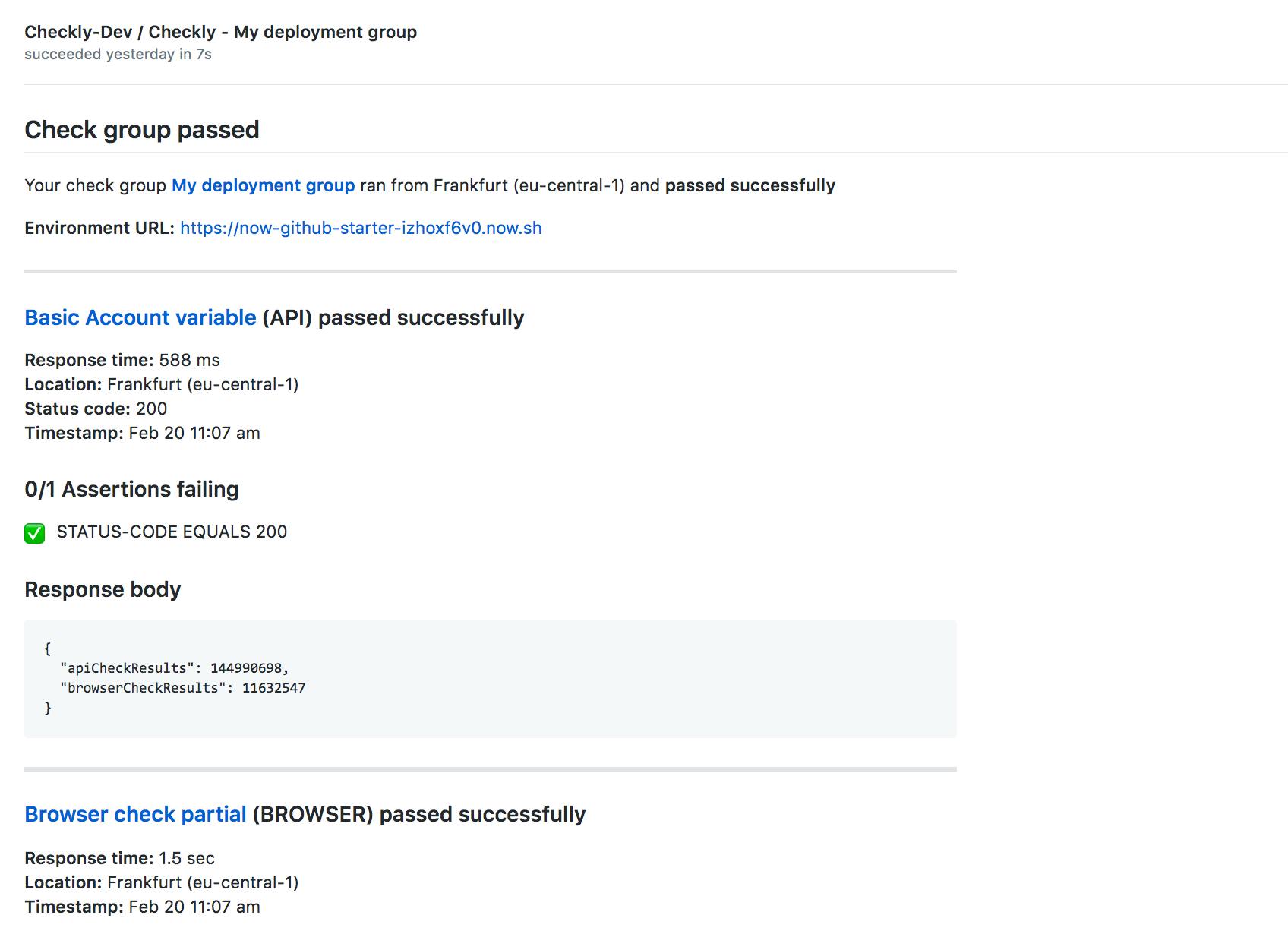
Read more about CI/CD and triggering groups in our documentation.
Give us feedback
Found a bug, missing a feature or just want to tell us something? Please contact us using the chat bubble on the lower right corner or at support@checklyhq.com

